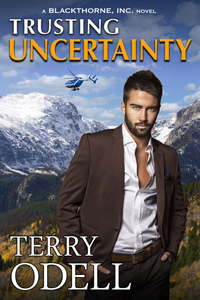Don’t Play Coy With Your Readers
Terry Odell

Image by Tayeb MEZAHDIA from Pixabay
One of my first writing lessons was Point of View. I learned it was a good idea to stick to one character at a time (and ‘time’ means more than a paragraph or two).
As a reader, I discovered I connected more with characters if I was privy to their thoughts. There are no hard and fast rules about Point of View beyond it’s important that readers can keep track of whose head they’re in.
My preference is to use Deep Point of View, which is sometimes called Close or Intimate, and that’s the focus of today’s post. What you call it isn’t as important as making sure that your readers can’t know anything your POV character doesn’t know. Or see. Or feel. Or smell. Or hear. It’s very close to writing in first person.
POV is a powerful tool, because by controlling the POV character, you control what you reveal to the reader. As I said above, the reader is only privy to what the character knows. On the flip side of that coin, if the POV character sees, smells, feels, or hears something, the reader should, too.
In my current WIP, my female lead knows why she quit her job, and is aware of some less-than-ethical behaviors of her boss. I’m eight chapters in, and she doesn’t want the male lead to know the details yet. But she can feed him bits and pieces as circumstances arise. The way I see it, it’s the author’s responsibility to find legitimate ways to withhold information from readers until it’s time to reveal it.
Which brings me to a couple of recent reads which had my hackles up. Both were written in first person POV. That puts the reader right into that character’s head, the same way Deep POV does.
In one book, the character read a letter; in the second she looked at a photograph. In both instances, the characters had strong emotional reactions to what they’d just seen. These books were both mysteries, and this “secret” information provided important clues.
But—and this is where I would have screamed out loud, had it not been late at night with someone sleeping nearby—both authors opted to hide this information from the reader. They simply avoided the reveal. The characters mulled it over, worried about it, wondered if they should tell another character, weighed the pros and cons. On and on. But never did they mention the name of the person in the photograph or the contents of the letter. The characters knew what they’d seen, so there was no reason the reader shouldn’t other than the author was doing what one of my first critique group leaders called “Playing Coy With the Reader.”
And for me, it’s not fair, not if you’re writing in first person or deep POV. It’s like when a television show character gets a letter, opens it, reads it, and then … cut to commercial without letting the viewer know what it said. If, when the commercial is over, the action picks up where it left off before the break and either shows the letter or the characters talking about it, I’ll accept it as being a way to make sure viewers “stay tuned.”
Now, if the author breaks to a different POV character, I might forgive them if, when we get back to the first character’s POV, we get the reveal. But to put a reader in a character’s head and then yank them out when something important happens is likely to aggravate them rather than heighten the suspense (which is what the author is going for.) To me, it’s a cheat.
In one of the books, the author never put the information out there. In the other, it took a while, but the reveal did come, so I grumbled and gave the author another chance.
And that’s what might happen. Play coy with the reader and you might lose them, not just for this book, but for future books they’ll never read.
In a more distant point of view, where the author is telling the story more than the character, it might not be such an issue, but then—I don’t like distancing points of view. Your mileage may vary.
All right, TKZers. What are your thoughts about authors withholding information a reader should have? Does it add a layer to the read for you, or frustrate you?
(I’m away from cyberspace this morning, but will be back later this afternoon to respond to comments.)
 Now available for Preorder. Trusting Uncertainty, Book 10 in the Blackthorne, Inc. series.
Now available for Preorder. Trusting Uncertainty, Book 10 in the Blackthorne, Inc. series.
You can’t go back and fix the past. Moving on means moving forward.
Terry Odell is an award-winning author of Mystery and Romantic Suspense, although she prefers to think of them all as “Mysteries with Relationships.” Follow her on Facebook and Twitter.
